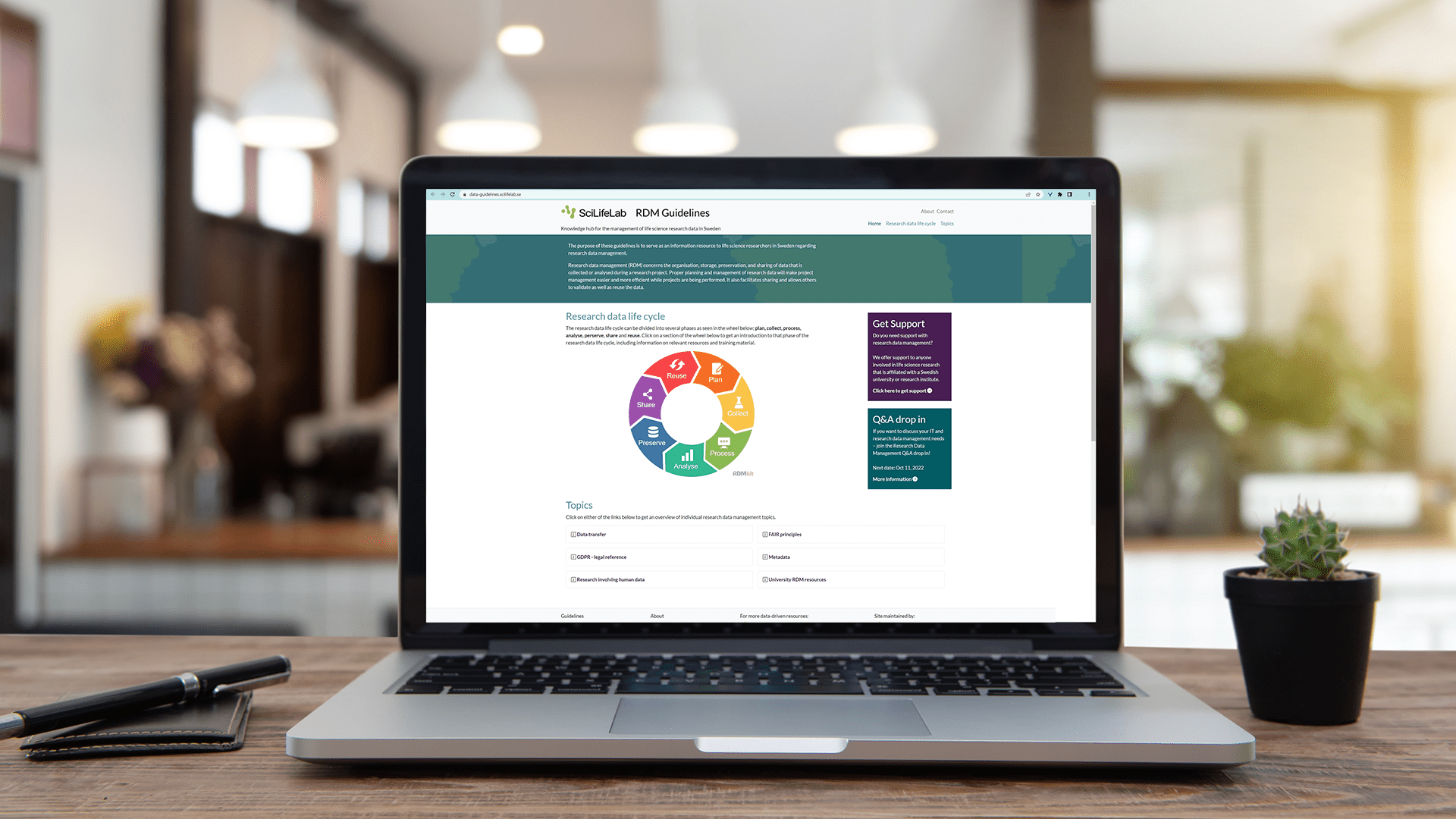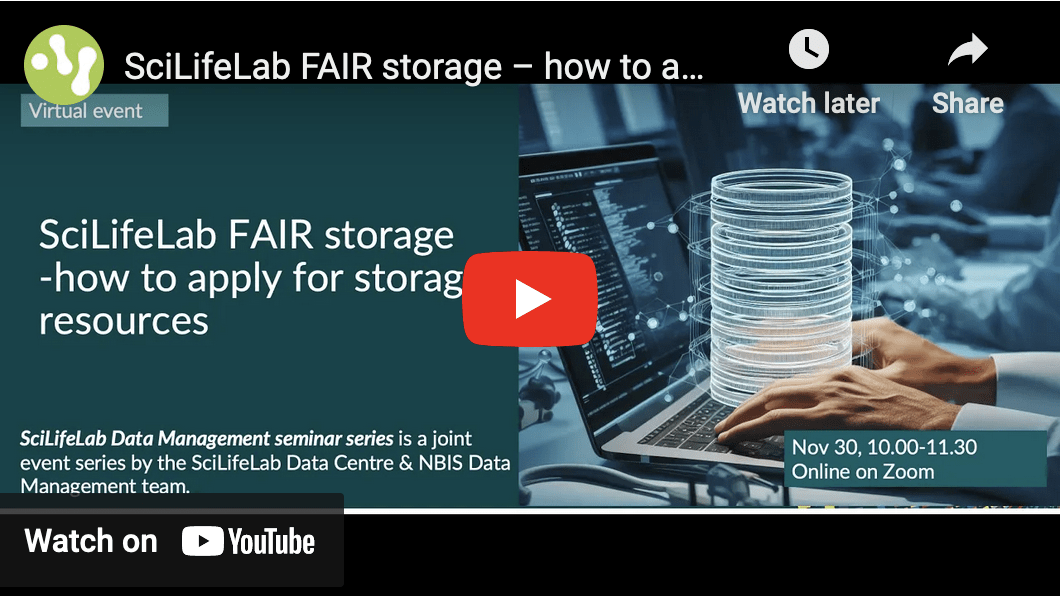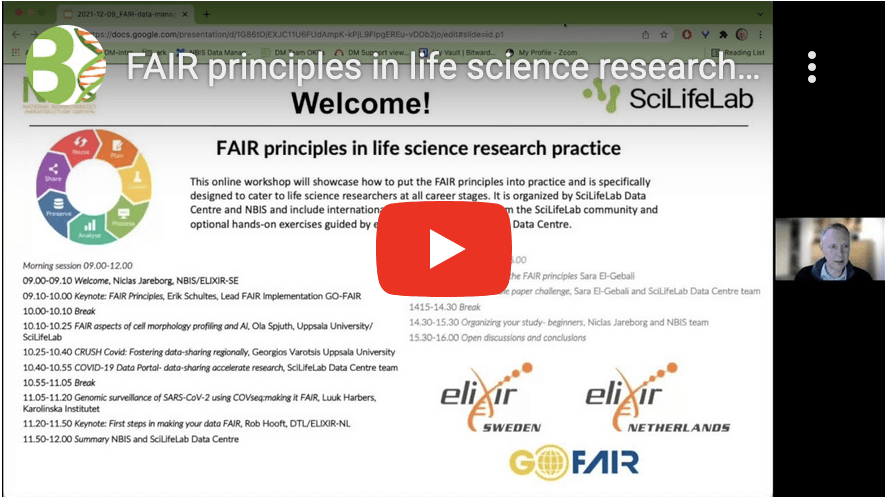Data Management seminar series
Previous events
Previous events
Watch on Youtube
February 21 2024, 10-11 (virtual event) Discover SciLifeLab cutting-edge services supporting data sharing: Data Repository and Serve
The seminar will start with an introduction to data sharing followed by presentations of two SciLifeLab services connected to data sharing; SciLifeLab Data Repository – institutional instance of Figshare and SciLifeLab Serve – hosting of AI and Machine Learning model and apps.
Welcome! Speakers Anna Asklöf, Data Steward, Arnold Kochari, Project Leader, SciLifeLab Data Centre.The event is moderated by Parul Tewatia, Data Steward.
Watch the event on Youtube
March 27, 10-11 (virtual event) Publish code, software and workflows: Examples of why and how from SciLifeLab
The topic of this online seminar is “Publish code, software and workflows: Examples of why and how from SciLifeLab“. This seminar will highlight why code, research software and computational workflows are important research assets and showcase practical approaches to sharing, citing and getting recognition for your work. A presentation followed by a Q&A session will elaborates on motivations and good practices using examples from the SciLifeLab community.
Speaker: Wolmar Nyberg Åkerström, Data Steward, NBIS. The event is moderated by Katarina Öjefors Stark, Data Steward.
Watch the event on Youtube
April 17 10-11 (virtual event) Research involving human data – what do I need to think of as a researcher?
The topic of this online seminar is “Research involving human data – what do I need to think of as a researcher?“. This seminar will focus on collecting and using personal data in research. We will guide you through the different phases of a typical research project and discuss some commonly asked questions. We will, for example, talk about practical aspects of the ethical review, GDPR, and how to share sensitive data.
Speaker: Markus Englund, and Erik Hedman Data Steward, NBIS. The event is moderated by Katarina Öjefors Stark, Data Steward.
May 22 10-11 (virtual event) Open Science and the SciLifeLab Open Science Initiative
During this session, we welcome Chris Erdmann, Head of Open Science at SciLifeLab. He will provide a background on Open Science, offering insights to navigate and comply with open science guidelines and policies. We will explore ways to seamlessly integrate open science into your workflows, discussing various tools and methodologies. He will also provide references to helpful resources that you can refer to following the session. Additionally, time will be dedicated to Q&A and discussion.
Speaker: Chris Erdmann, Head of Open Science, SciLifeLab Data Centre.



